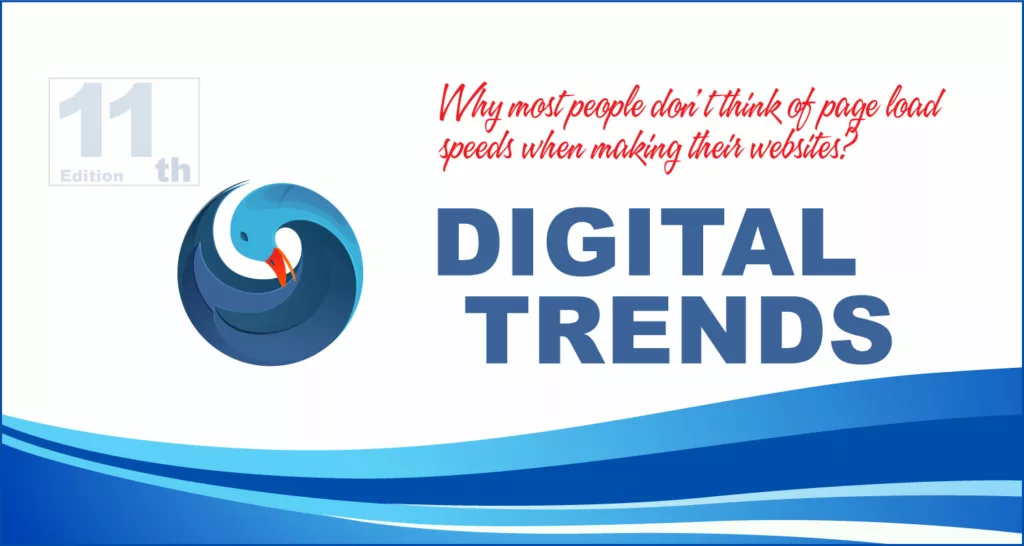Here are a few reasons why many people don’t focus on web speed when making a website.
Does one of them resonate with you?
- Lack of awareness: Many people may not be aware of the impact of page load speeds on the user experience and search engine rankings. With this knowledge, they may prioritize page load speeds when designing and building their websites.
- Focusing on other aspects: When building a website, many people may focus on other factors, such as design, functionality, and content. While these are important, page load speeds can sometimes take a backseat.
- Limited technical knowledge: Some people may need more technical expertise or resources to optimize page load speeds. This can make it difficult for them to understand the technical aspects of page load speeds and how to improve them.
- A belief that page load speed is not important: Some people may not think it is necessary; they might think that as long as the site looks good and has the essential information, it’s good enough.
- The belief that page load speed optimization is expensive or complicated: Some people may believe that optimizing page load speeds is costly or complex when there are several simple and cost-effective ways to improve page load speeds.
Why page load speed is vital to Google ranking

Page load speed is an important factor in Google’s ranking algorithm because it directly impacts the user experience. Google wants to ensure its users have a positive experience when searching for information, and slow-loading pages can negatively impact that experience.
Here are a few reasons why page load speed is important to Google ranking:
- User Experience: Page load speed is directly related to the user experience. When pages load quickly, users are more likely to stay engaged and interact with the website. Slow-loading pages, on the other hand, can cause users to abandon the website, leading to high bounce rates.
- Search engine rankings: Google considers page load speed when determining search engine rankings. This means faster-loading pages are more likely to rank higher in search engine results pages (SERPs), leading to increased visibility and more traffic.
- Mobile optimization: With the increasing number of users accessing the internet on mobile devices, Google has emphasized mobile optimization more. Page load speed is a key factor in mobile optimization, as slower-loading pages can lead to a poor user experience on mobile devices.
- Technical SEO: Page load speed is also a technical SEO factor. Google’s crawlers measure the speed of a website, and it can affect the indexing process and the overall SEO performance of a website.
- Business impact: Page load speed directly impacts a business’s bottom line. Faster-loading pages can increase conversions and revenue while slower-loading pages can result in lost sales and reduced engagement.
In summary, page load speed is an important factor in Google’s ranking algorithm because it directly impacts the user experience. Google wants to ensure its users have a positive experience when searching for information, and slow-loading pages can negatively impact that experience. Businesses can improve their search engine rankings, mobile optimization, technical SEO, and business impact by optimizing page load speed.
Try these steps to increase page load speed:
- Optimize images: Large images can slow down a page’s load time, so optimizing images by compressing them and reducing their file size is important. This can be done using image compression tools such as TinyPNG or JPEGoptim.
- Minimize HTTP requests: Each time a page loads, it sends an HTTP request to the server to retrieve resources such as images and scripts. Minimizing the number of requests can help speed up load time.
- Use a Content Delivery Network (CDN): A CDN can help distribute your website’s resources across multiple servers, which can help speed up load time for users worldwide.
- Optimize code: Optimizing code can help reduce the amount of data that needs to be loaded, speeding up load time. This can include minifying CSS and JavaScript, and removing unnecessary code.
- Use browser caching: Browser caching can help reduce the amount of data that needs to be loaded each time a user visits a page. The browser can load resources faster on subsequent visits by caching resources such as images and scripts.
- Reduce the number of plugins, scripts, or heavy third-party integrations on the website: They can slow down the page as they need to be loaded and executed.
- Use a fast web hosting service: A web hosting service that is optimized for speed can help ensure that your pages load quickly.

Are you interested in maximizing your online growth? We can help with Web Strategy, Web Design & Development, SEO, and content writing. Talk to Us! Call: (857)400-8959
Stay connected
We’re always hard at work putting out new content covering WordPress, marketing, and SEO news. Stay connected with us 100% spam FREE.
